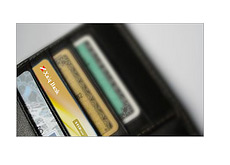9 Things About the Credit Cardholders Bill of Rights You Need to Know
 For many of us, the credit cardholders bill of rights came just a little too late. Due to the unfortunate foot dragging in congress and the timeframe given to card companies to enact the bill's policies, some of the would-be benefits to consumers from this bill have been diminished. Still, the bill adds to the protection of the consumer through various new guidelines and rule clarifications.
For many of us, the credit cardholders bill of rights came just a little too late. Due to the unfortunate foot dragging in congress and the timeframe given to card companies to enact the bill's policies, some of the would-be benefits to consumers from this bill have been diminished. Still, the bill adds to the protection of the consumer through various new guidelines and rule clarifications.Here is a general overview of a few of the most important points to consumers. I've left Title V of the bill out of this article due to its focus upon the administration and other miscellaneous items of the bill itself.
Title I - Consumer Protection
1. Notice of Changes. It is now mandatory that credit card companies notify you in writing of changes to your annual percentage rate or cardholder agreement 45 days prior to the date on which the changes take effect. It also prohibits credit card companies from making changes to rates affecting existing credit balances unless specified requirements are met such as the end of an introductory period or you not complying with certain requirements within the cardholder agreement.
2. Charges. The bill now restricts finance charges for previous billing cycles (double billing). It also affects over-the-limit fees, limiting this type of fees to one per month, and only if the consumer permits the creditor to complete the transaction that brings him or her over their credit limit. This doesn’t mean that if you knowingly go over your credit limit you won't be getting charged, hopefully just not as heavily or as often.
3. Payment Application. Many credit card companies apply additional amounts in excess of the minimum card payment you make to lower interest rate debt, leaving higher interest rate debt to stagnate and earn them more money. Now companies must first apply overages to the debt with the highest interest rate. Once that amount has been paid, they are then required to apply any additional overpayment to the next highest interest rate, and so on down the line until the payment amount is exhausted.
4. Payment Ability. I find Section 109 of this bill laughable if not altogether sad. According to the H.R. 627 bill summary, this section requires card companies; consider the ability of the consumer to make required payments as a prerequisite to opening any consumer credit card account, or increasing any credit limit. Does congress actually think this will stop card companies from doling out credit cards like candy? I guess we'll see.
Title II - Enhanced Consumer Disclosures
5. Toll Free # and Internet Information. Have you ever wondered where you placed your credit card agreement and what exactly it said in all those finely printed paragraphs? Maybe you’d like help determining the best way out of credit card debt. Well, here's your chance. Credit card companies will be required not only to establish a toll-free number to provide information about debt counselling and management services but also post on an internet site the agreement between you and your card company.
6. Fair Credit Reporting Act. Have you always wanted to know where to get a free credit report but weren't sure if those ads you saw on television were bogus or not? According to the H.R. 627 bill summary, advertisements for free credit reports must now "disclose prominently that free credit reports are available under federal law at AnnualCreditReport.com (or other authorized source)."
Title III - Protection of Young Consumers
7. Under 21. Unfortunately, an ever-growing issue is the excessive use of credit cards by young adults. With this new bill however, those under 21 will be restricted from holding credit cards in their name alone, needing a valid co-signer to hold joint liability for debts incurred upon the card.
8. Campus Freebies. Ever have your son or daughter come home from college laden with free t-shirts with credit card company logos plastered across the front of them? Well, under this section of the bill, these types of enticements to apply for a credit card on college campuses and at institutions of higher learning will be a no-no.
Title IV - Gift Cards
9. Dormancy/Inactivity Fees. While at first glance this section seems to indicate that these ridiculous fees will be abandoned altogether, it appears from the exceptions written into the bill that as long as the fees are properly disclosed upon purchase of the gift card, pre-paid credit card, gift certificate, etc. they will be allowed to remain but under more heavily restricted guidelines.
For a more complete explanation and understanding of the bill, access the summary or full text version of H.R. 627: Credit Card Accountability Responsibility and Disclosure Act of 2009.
About the Author
Mark Brown writes about personal finance for a comparison site allowing you to find the best credit cards and debit cards in Australia. You can read more of his work on their blog, The Credit Letter.
Photo: cncpt
Filed under: General Knowledge



